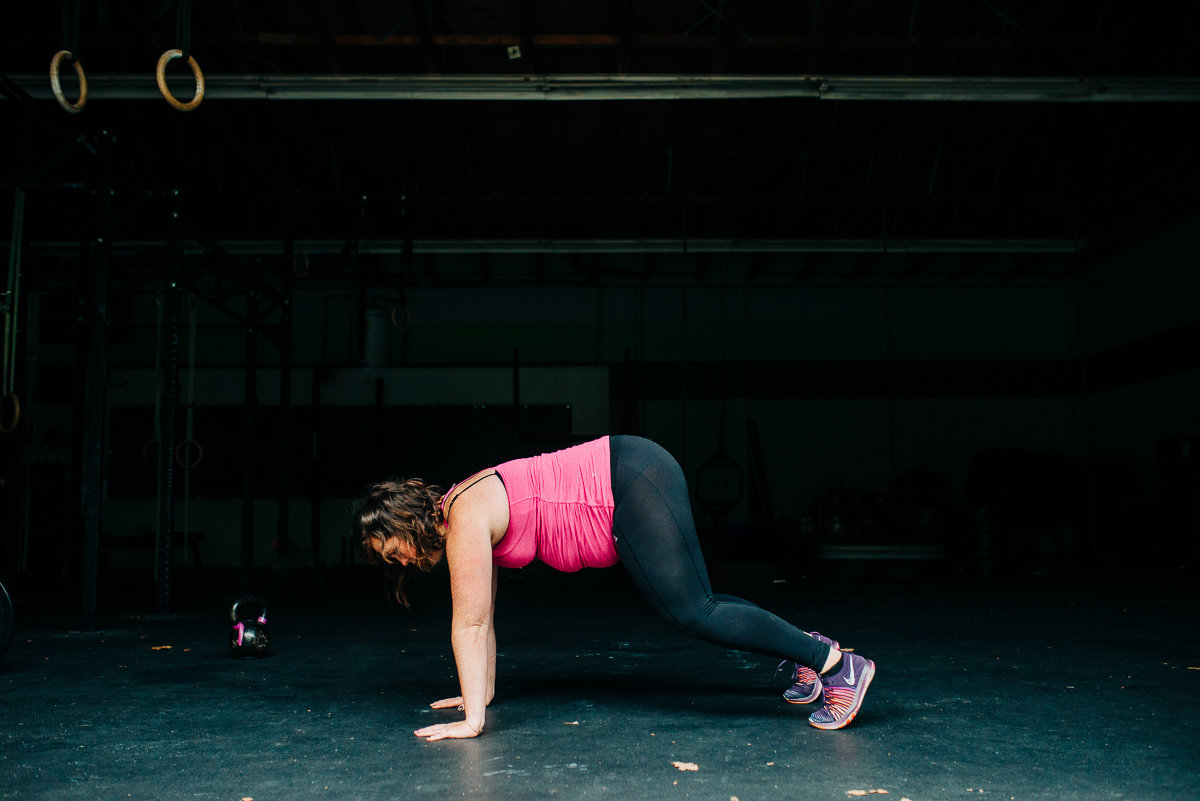Last Updated on January 6, 2025
Yes, burpees can be done while pregnant, but it’s important to consult with your healthcare provider first. During pregnancy, the body experiences various changes and modifications should be made to exercise routines for safety.
Pregnancy is a special time when the body goes through significant physiological changes. Staying active during pregnancy is generally encouraged as it can provide numerous benefits, including improved mood, stamina, and overall well-being. However, it’s crucial for pregnant women to approach exercise with caution and seek guidance from their healthcare provider.
Burpees, a full-body exercise that combines squats, push-ups, and jumps, can be adapted for pregnancy. However, modifications need to be made to ensure the safety and comfort of the mother and the developing baby. This article will explore whether burpees are safe during pregnancy, potential risks, and alternative exercises that can provide similar benefits. Always consult with a healthcare professional before starting or continuing any exercise routine during pregnancy.

Credit: lizwinterswellness.com
Understanding The Safety Of Burpees During Pregnancy
Pregnancy is often accompanied by a myriad of questions about what is safe and healthy for both mom and baby. One exercise that frequently sparks debate is the burpee. Known for its intensity and full-body engagement, it’s natural to wonder if it’s suitable during pregnancy.
We will delve into the safety of burpees for expectant mothers. Specifically, we will explore the risks and benefits of exercising during pregnancy, as well as the impact of high-intensity exercises on pregnant women.
Risks And Benefits Of Exercising During Pregnancy:
- Engaging in regular physical activity during pregnancy can offer numerous benefits, such as improved mood, increased energy levels, and reduced pregnancy discomfort.
- Exercise can help manage weight gain, promote healthy blood circulation, and enhance muscle tone and strength.
- It may also aid in better sleep, preparation for labor, and faster postpartum recovery.
- However, it is crucial to consult with a healthcare provider before starting or modifying any exercise routine during pregnancy.
- They can provide personalized advice based on your individual circumstances, taking into account any potential risks or complications.
Impact Of High-Intensity Exercises On Pregnant Women:
- High-intensity exercises, such as burpees, involve quick and intense movements that significantly elevate heart rate and exertion.
- Pregnant women should proceed with caution when engaging in high-intensity workouts, as they may increase the risk of injury or complications, especially for those who were not active before pregnancy.
- These exercises can put strain on the pelvic floor and abdominal muscles, potentially leading to issues like diastasis recti or pelvic floor dysfunction.
- Women with certain conditions, such as placenta previa, preeclampsia, or a history of premature labor, should avoid high-intensity exercises altogether.
- Instead, they may opt for low-impact activities like walking, swimming, or prenatal yoga, which provide cardiovascular benefits without excessive strain.
Remember, each pregnancy is unique, and it’s essential to listen to your body’s signals. By understanding the risks and benefits of exercising during pregnancy and considering the impact of high-intensity exercises, you can make an informed decision about including burpees or modifying your routine to ensure a safe and healthy pregnancy journey.
Modifying Burpees For Pregnancy: Safe Alternatives
Being pregnant doesn’t mean you have to give up your regular exercise routine. In fact, staying active during pregnancy can offer numerous benefits for both you and your baby. However, certain exercises may need to be modified to accommodate the changes your body is experiencing.
One exercise that often comes into question is the burpee. Known for its intense full-body workout, many pregnant women wonder if it’s safe to continue doing burpees. We will explore modifying burpees for pregnancy and provide safe alternatives that can keep you fit and healthy throughout each trimester.
Importance Of Consulting With A Healthcare Professional
Before incorporating any new exercise or modifying your existing routine during pregnancy, it is crucial to consult with your healthcare professional. They have the expertise to evaluate your specific health condition and guide you on what exercises are safe for you and your baby.
Here are a few reasons why seeking medical advice is important:
- Every pregnancy is different, and individual circumstances may affect exercise recommendations.
- A healthcare professional can assess your fitness level, any existing medical conditions, and potential risks.
- They can provide personalized guidelines on the intensity, duration, and frequency of exercise.
- Considering your medical history, they can recommend adjustments to ensure your safety and optimize the benefits of exercise.
Guidelines For Modifying Burpees During Pregnancy
Burpees, consisting of a squat, plank, push-up, and jump, can be challenging on your body as it undergoes pregnancy-related changes. However, there are modifications you can make to continue enjoying the benefits of this exercise. Here are some guidelines to consider:
- Focus on the lower body: Modify burpees by eliminating the jump and replacing it with a controlled squat or step-back movement.
- Avoid lying flat on your stomach: Instead of the traditional plank position, consider using an elevated surface like a bench or wall for a supported plank.
- Reduce impact and weight-bearing: Opt for modified push-up variations, such as incline push-ups against a wall or countertop, to avoid strain on your wrists and reduce weight-bearing on your abdomen.
Recommended Modifications For Each Trimester
As your pregnancy progresses, your body will continue to change, requiring adjustments to your exercise routine. Here are specific modifications to consider for each trimester:
First trimester:
- Focus on maintaining your current exercise routine with proper form and listening to your body’s cues.
- Slow down if you feel excessively fatigued or experience shortness of breath.
- Avoid exercises that involve lying flat on your back for extended periods.
Second trimester:
- Modify exercises by widening your stance and choosing a lower range of motion to accommodate your growing belly.
- Consider using a stability ball for support during plank positions.
- Avoid exercises that put excessive strain on your abdominal muscles, such as traditional burpees.
Third trimester:
- Perform standing exercises rather than those that require lying on your back or flat on your belly.
- Incorporate pelvic floor exercises to strengthen your core and prepare for labor.
- Prioritize stability and balance exercises to help with your changing center of gravity.
Remember, the modifications provided are general guidelines, and individual needs may vary. Always listen to your body, pay attention to any discomfort or pain, and adjust the exercises accordingly. By staying active and modifying exercises as needed, you can maintain a safe and enjoyable fitness routine throughout your pregnancy.
Frequently Asked Questions Of Can You Do Burpees While Pregnant?
Can I Do Burpees While Pregnant?
Yes, you can do burpees while pregnant, but it’s important to modify them for your safety.
Are Burpees Safe During Pregnancy?
Burpees can be safe during pregnancy if you modify them to avoid putting excessive strain on your body.
How Should I Modify Burpees If I’M Pregnant?
To modify burpees while pregnant, try keeping your hands on an elevated surface instead of the ground.
Should I Consult My Doctor Before Doing Burpees While Pregnant?
It’s always a good idea to consult your doctor before starting or modifying any exercise routine during pregnancy.
What Are The Potential Risks Of Doing Burpees While Pregnant?
The potential risks of doing burpees while pregnant include putting excessive strain on your pelvic floor and abdominal muscles.
Conclusion
It is essential to prioritize the safety and well-being of both the mother and the unborn baby during pregnancy. While burpees are a high-intensity exercise that can offer numerous benefits, performing them while pregnant requires careful consideration and guidance from a healthcare professional.
It is generally recommended to modify the burpee exercise during pregnancy by eliminating the jump and adjusting the pace and intensity. This modification helps reduce the risk of injury, improves comfort, and ensures that the exercise remains appropriate for the changing body.
Additionally, pregnant women should always listen to their bodies and make modifications or seek alternatives to exercises that feel uncomfortable or cause pain. Remember, staying active during pregnancy is important for maintaining overall health, but safety should always be the top priority.
Consulting with a healthcare provider and following their advice will help ensure a healthy and enjoyable pregnancy fitness routine.











